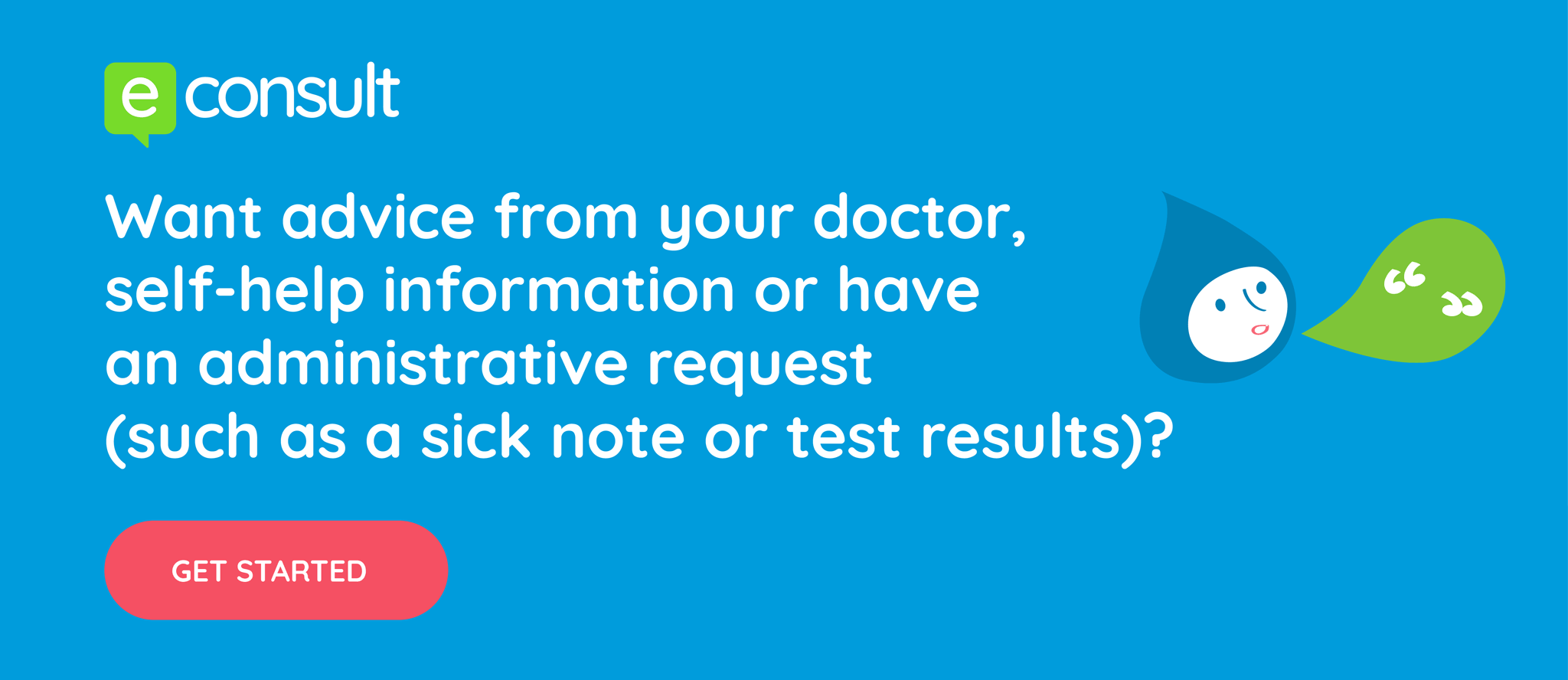eConsult
Want advice from your doctor, self-help information or have an administrative request (such as a sick note or test results)? Get Started.

Our out of hours service
If you are unwell in the evening, overnight or at the weekend or during a UK Bank Holiday, visit 111.nhs.uk for urgent medical advice for people aged 5 and over only. Call NHS 111 if you have an urgent medical problem but aren't sure what to do. Please note that the 111 call back service is very busy.
Issues of community interest
The following areas have been highlighted by our Patient Participation Group (PPG):
Friends and Family Test
The Friends & Family Test (FFT) is an important feedback tool that supports the fundamental principle that people who use NHS services should have the opportunity to provide feedback on their experience.
Listening to the views of patients and staff helps identify what is working well, what can be improved and how.
To submit feedback on local health services please visit our Feedback page.